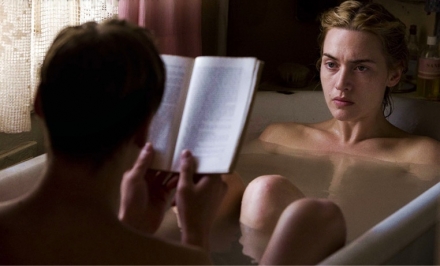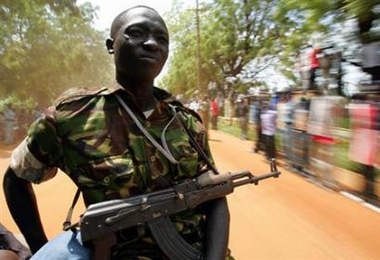
Campaign to free Justina Mukoko, AP Photo
ANGLICAN-INFORMATION has been asked to circulate the following report from Zimbabwe, a country whose people’s sufferings are being quietly forgotten at the moment.
WOMEN'S WATCH 1/09
[8th January 2009]
Just a few days before Christmas Eve news started filtering in about Jestina Mukoko, who had been abducted from her home in front of her son. Lawyers were then able to locate Jestina and a number of others who had been victims of "enforced disappearances" in various police stations around Harare.
Those members of the public who came forward with information are to be commended for their courage - it is this kind of bravery, in an environment where people are living in constant fear of their lives, that will overcome abuses of power by the State.
Jestina and nine others [four of whom are women and one a child aged two] were produced at the magistrates court for a remand hearing on Christmas Eve. Another nine men listed among the disappeared were produced between Christmas and New Year. All eighteen turned out to have been in the hands of state agents during the time they were missing and all have sworn affidavits describing their torture during the period they were illegally held. These have been corroborated by medical evidence. Even the two year old was beaten with his mother.
Over the last few days there have been numerous court applications that the tortured should be admitted to hospital for proper medical investigations and treatment. Only one judge, Judge Omerjee, has ordered this and the State immediately appealed against his judgment, thereby suspending it.
The victims are being held in solitary incarceration at Chikurubi maximum security prison and their remand hearings in the magistrates court are still being dragged out by numerous delays on the part of the State. Jestina and the other women will have their next hearing at the magistrates court on Wednesday 14th. These delays are a complete travesty of justice.
Women's Courage Shines in ZimbabweThe following are extracts from an article in Womensenews paying tribute to women in Zimbabwe in their fight for peace and human rights.
To all the women in Zimbabwe: "Women have figured more prominently in the resistance over the past 10 years and have become increasingly visible. Often they face the police with the bearing and confidence of mothers, grandmothers and older women who deserve traditional respect."
To Jestina Mukoko: for her work for peace which has included documenting political violence and human rights abuses and who is now suffering for her activism and who has paid dearly for it. "In her first public appearance since the abduction, Mukoko's face and body appeared swollen and bruised. BBC video footage showed her looking stoical as she was led into police custody, showing a peace and calm in the face of those who had brutalized her." They cite the court affidavit: "Mukoko described being beaten repeatedly on the soles of her feet with a hard, rubber object. She spoke of being interrogated while being forced to kneel on gravel, blindfolded. All the while state agents beat her. They were drunk and their fists struck again and again."
To Abigail Chiroto: "wife of Emmanuel Chiroto, who was the candidate for mayor of Harare, the nation's capital, last March, when elections also swept other members of his Movement for Democratic Change party to a majority in the parliament. Last June, a gang of armed state agents drove three white unmarked cars to the Chiroto home. Emmanuel was not home, but Abigail was. As the cars pulled up, everyone on the premises immediately fled, fear in their eyes. Abigail was left behind, frantically searching for her 4-year-old son. The state agents were in no mood for disappointment. They petrol-bombed the house and abducted Abigail and her son. Days later her burned, lifeless body was found at a nearby farm, still wearing a blindfold. Her son is lucky to be alive, but now lives a life without his mother's love and protection. Emmanuel went into hiding."
To the perseverance of the women of Zimbabwe: "Extraordinarily, life goes on ... Cholera is a new enemy - a preventable disease that strikes discriminately, killing poor people, who typically live in areas where sanitation systems have broken down or where there is no access to clean water or adequate health facilities ... There is nothing left except a strong need for survival."
Education and the Girl ChildThe UN Children's Fund [UNICEF] recently stated that school attendance in Zimbabwe has been dropping at an alarming rate [from more than 85 percent in 2007 to just 20 percent by the third term of 2008] because of the collapse of the country's socio-economic system, affecting students and teachers alike, and that few children in Zimbabwe will be returning to class when schools re-open.
The UNICEF Representative in Zimbabwe, Roeland Monasch, says the cholera epidemic and the collapse of basic services are adversely affecting the population. Children are staying away from school because they have to help their parents look for food or find ways to earn money to help support their families. Many schools closed about three months early last year because teachers were no longer coming to work. He says he is afraid they will not show up when school reopens in mid-January. The majority of teachers are not attending work due to low salaries and bad working conditions. School buildings are in a dire state. Many have no toilets and no running water.
The current situation is further complicated by the HIV/AIDS crisis in Zimbabwe. Nearly one in four Zimbabwean children are orphaned by the disease. The ability of support groups to provide care and treatment to those infected with HIV has decreased. The closure of schools affects many of the over 1.3 million orphans, children who have lost their mother, father or both parents and who need to have a protective and stable environment which schools can help to provide.
As always it will be the girl child that suffers most. Girls are the ones that are pulled out of school to help nurse the sick, to help collect firewood and water, to help with household chores and to cultivate and weed at this time of year.
From Anglican Information
 Barry Morgan, Archbishop of Wales
Barry Morgan, Archbishop of Wales










 (China Daily)
(China Daily)


